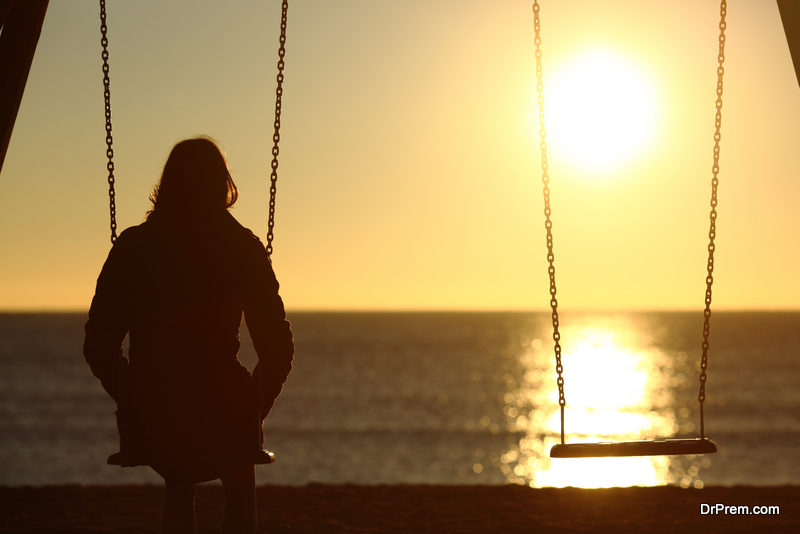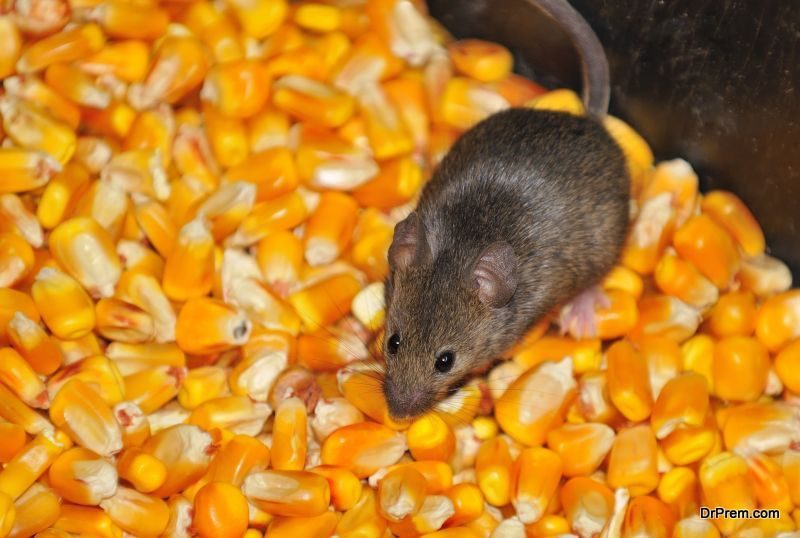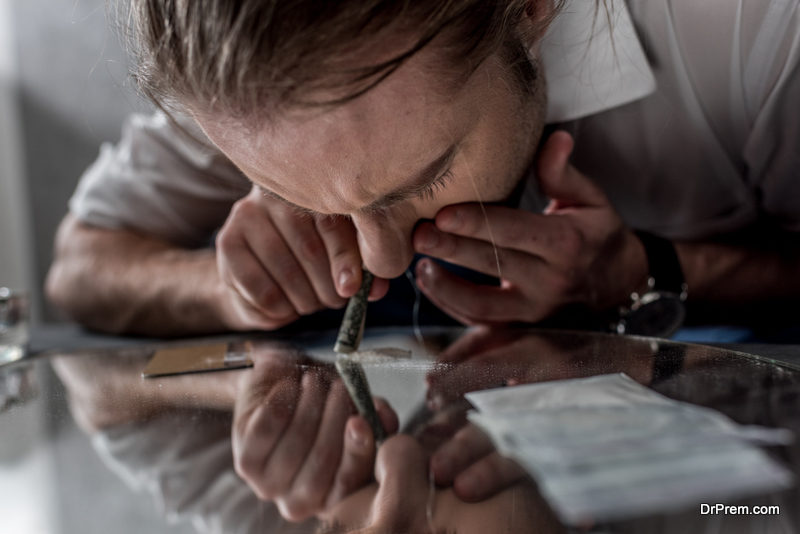Social isolation makes one feel insecure and socio-culturally marooned. Emotional attachment is a childhood experience and a lack of it makes one feel turned down which is very painful. Isolation and depression are alternate phases of a connected mental cycle where one chases the other.
 Addictive behavior often develops from isolation and depression cycle, where the victim is in a mad quest for some sort of support. When our craving for emotional attachment is not met by enough mental nourishment, drug dependency becomes a destructive way out. Often, a traumatic experience of abuse and rejection in our formative years shapes our mental health in a rather distorted manner. A vacuum is created and we grow with this.
Addictive behavior often develops from isolation and depression cycle, where the victim is in a mad quest for some sort of support. When our craving for emotional attachment is not met by enough mental nourishment, drug dependency becomes a destructive way out. Often, a traumatic experience of abuse and rejection in our formative years shapes our mental health in a rather distorted manner. A vacuum is created and we grow with this.
However, the void inside our core left by social and cultural factors soon needs to be filled up. Abusive substances like heroin and cocaine feed this mental void with their euphoric effects. Real life issues take a backseat.
Attachment anxiety invites drug addiction:
 As children, we seek attachment to entities both animate and inanimate. The strongest attachment would be between the mother and the baby. Other sources of attachment are with the father, intimate family members like siblings, and other care-giving sources like nannies.
As children, we seek attachment to entities both animate and inanimate. The strongest attachment would be between the mother and the baby. Other sources of attachment are with the father, intimate family members like siblings, and other care-giving sources like nannies.
Objects of attachment could even be nonliving materials like the teddy bear or a favorite doll the baby spends hours with. Even talking to these toys seems perfectly normal for a baby while sharing its joys and sorrows with someone near someone dear.
When these emotional attachments start going weak, the world starts crumbling down. Pangs of neglect are injected into the impressionable mind of the baby. They feel extremely defenseless and a risk factor of self ruination raises its head. The way a child responds to its caregiver structures its style of emotional attachment.
The seeds of anxiety are planted in the tender psyche if the child shows an extreme tendency of attention-grabbing. On the other extreme, it could be the avoidant type, displaying an inclination to independence and rejection of attachment. When these children reach adulthood, they express similar attachment moods to their partners and with all whom they interact.
Studies reveal that grown-up adults show fear of rejection in a society much the same way they had been through rejection in their childhood. This response is technically known as rejection sensitivity. Here, the propensity to discern surprisingly obscure incidents in social interactions does end in rejections.
Rejections lead to automatic defensive responses like fury and exit from the scene with exasperation. It is not hard to see why a rejected lover finds solace in a bottle of alcohol. Social disapproval culminates in addictive behavior.
Relationships are substituted by objects facilitating escape into a virtual worry-free world. Alcoholism sets in and substance abuse shows the socially isolated person the easy route to the abyss. To overcome loneliness, marijuana and cocaine become the new companion and a dangerous one indeed!
The rat experiment:
 A famous rat experiment was carried out in 1970 by a team of scientists to link isolation with drug addiction. A rat was put in a cage with 2 bottles of water, one laced with drug and other one plain. Drugged water attracted the lonely rat, luring it to consume it and eventually invite death.
A famous rat experiment was carried out in 1970 by a team of scientists to link isolation with drug addiction. A rat was put in a cage with 2 bottles of water, one laced with drug and other one plain. Drugged water attracted the lonely rat, luring it to consume it and eventually invite death.
But Professor Bruce Alexander from the Department of Psychology, Vancouver had certain observations. When rats were scampering in a rat park with fellow mates around, their behavior changed. Same two bottles of drugged and plain water were placed along with choicest rat fodder and some colored balls. All rats avoided drugged water and no one died. The addictive behavior of rats exiled in loneliness is established from this test.
Loneliness leading to substance abuse:
 Drug addicts show a feeble apprehension of issues in the domain of social bonding and poor emotional reciprocation for others. Their social web is poorly connected and often clouded with mistrust and animosity. All the solution to problems faced in real life is preferably buried under alcoholism and drug abuse.
Drug addicts show a feeble apprehension of issues in the domain of social bonding and poor emotional reciprocation for others. Their social web is poorly connected and often clouded with mistrust and animosity. All the solution to problems faced in real life is preferably buried under alcoholism and drug abuse.
This is a probable cause of addictive behavior stemming from intense insecurity born out of social quarantine. Man is a social animal. He feels comfortable in the company of neighbors. His psyche is designed to help neighbors in distress and seek counter help when he is in trouble.
Any factor disrupting this natural affinity would make him feel lonely. A feeling of sadness rushes in and this could lead to struggle with depression. The more depressed you feel, the more you pull away from others, making friendship with alcohol and drugs.
Social isolation contributes to addictive behavior.
 Alcohol and drugs ruin your life, weakening your nervous system, heart health and immunity. Loneliness can have an adverse impact on your brain. The striatum, an area at the foot of forebrain, is responsible for decision-making process. It also controls your social networking platform.
Alcohol and drugs ruin your life, weakening your nervous system, heart health and immunity. Loneliness can have an adverse impact on your brain. The striatum, an area at the foot of forebrain, is responsible for decision-making process. It also controls your social networking platform.
It is also known as autopilot of your brain. Social seclusion makes your autopilot hypersensitive and catalyses uncontrollable actions. Addictive behavior is one among them. Your brain always craves for easy and quick comfort and it is here where drugs and alcohol walk in. According to Wurzman, a neuroscientist, the autopilot of the brain is capable of sending painful signals where it hurts, sourced from loneliness. This has ravaging upshots.
Loneliness and drug addiction are intimately linked:
A victim of social isolation may:
- Continue taking drugs and drinks, turning a blind eye to the harm it is having on relationships.
- Keep hanging on to addictive behavior despite the damage caused to mental and physical health.
- Avoid family and social responsibilities as they are way too unstable from after effects to discharge those duties.
- Shut themselves out from people who care and find a false respite in alcoholism and drug addiction.
Means to overcome loneliness:
 The state of affairs is gloomy for people suffering from loneliness and taking recourse to drugs.
The state of affairs is gloomy for people suffering from loneliness and taking recourse to drugs.
But there are rays of hope somewhere as remedial measures are available. According to neuroscientist Wurzman, overcoming loneliness and getting rid of drug addiction is possible.
The key word is social interaction. Sharing common experiences in a group suffering from loneliness and drug abuse makes one feel more connected. The patient feels that he is not alone in the world with similar problems. He can vent his grief and frustrations. Members of the group can draw strength from each other’s experiences.
To overcome this issue, a feasible treatment program needs to be designed including family therapy and assistance. In viable inpatient rehabilitation program, healthy behavioral habits could be inculcated.
Patients are to be educated to improve interpersonal relationships. Fellow feelings would enhance and so would self love and self-confidence. All will feel energized and focused and well connected to a social network where thoughts and intents run beyond limited solitary confinement.




